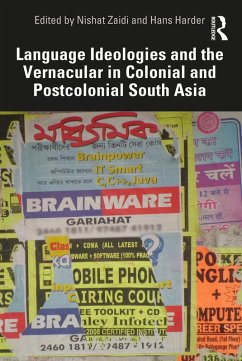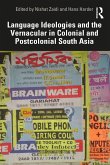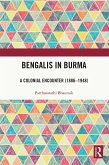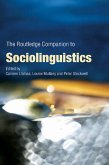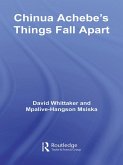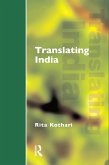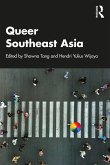Language Ideologies and the Vernacular in Colonial and Postcolonial South Asia (eBook, PDF)
Rethinking Language, Culture and Society
Redaktion: Zaidi, Nishat; Harder, Hans
41,95 €
41,95 €
inkl. MwSt.
Sofort per Download lieferbar

21 °P sammeln
41,95 €
Als Download kaufen

41,95 €
inkl. MwSt.
Sofort per Download lieferbar

21 °P sammeln
Jetzt verschenken
Alle Infos zum eBook verschenken
41,95 €
inkl. MwSt.
Sofort per Download lieferbar
Alle Infos zum eBook verschenken

21 °P sammeln
Language Ideologies and the Vernacular in Colonial and Postcolonial South Asia (eBook, PDF)
Rethinking Language, Culture and Society
Redaktion: Zaidi, Nishat; Harder, Hans
- Format: PDF
- Merkliste
- Auf die Merkliste
- Bewerten Bewerten
- Teilen
- Produkt teilen
- Produkterinnerung
- Produkterinnerung

Bitte loggen Sie sich zunächst in Ihr Kundenkonto ein oder registrieren Sie sich bei
bücher.de, um das eBook-Abo tolino select nutzen zu können.
Hier können Sie sich einloggen
Hier können Sie sich einloggen
Sie sind bereits eingeloggt. Klicken Sie auf 2. tolino select Abo, um fortzufahren.

Bitte loggen Sie sich zunächst in Ihr Kundenkonto ein oder registrieren Sie sich bei bücher.de, um das eBook-Abo tolino select nutzen zu können.
This volume critically engages with recent formulations and debates regarding the status of regional languages of the Indian subcontinent vis-à-vis English. It explores how language ideologies of the "vernacular" are positioned in relation to language ideologies of English in South Asia.
- Geräte: PC
- mit Kopierschutz
- eBook Hilfe
Andere Kunden interessierten sich auch für
![Language Ideologies and the Vernacular in Colonial and Postcolonial South Asia (eBook, ePUB) Language Ideologies and the Vernacular in Colonial and Postcolonial South Asia (eBook, ePUB)]() Language Ideologies and the Vernacular in Colonial and Postcolonial South Asia (eBook, ePUB)41,95 €
Language Ideologies and the Vernacular in Colonial and Postcolonial South Asia (eBook, ePUB)41,95 €![Bengalis in Burma (eBook, PDF) Bengalis in Burma (eBook, PDF)]() Parthasarathi BhaumikBengalis in Burma (eBook, PDF)43,95 €
Parthasarathi BhaumikBengalis in Burma (eBook, PDF)43,95 €![The Routledge Companion to Sociolinguistics (eBook, PDF) The Routledge Companion to Sociolinguistics (eBook, PDF)]() The Routledge Companion to Sociolinguistics (eBook, PDF)25,95 €
The Routledge Companion to Sociolinguistics (eBook, PDF)25,95 €![Markets of English (eBook, PDF) Markets of English (eBook, PDF)]() Joseph Sung-Yul ParkMarkets of English (eBook, PDF)55,95 €
Joseph Sung-Yul ParkMarkets of English (eBook, PDF)55,95 €![Chinua Achebe's Things Fall Apart (eBook, PDF) Chinua Achebe's Things Fall Apart (eBook, PDF)]() David WhittakerChinua Achebe's Things Fall Apart (eBook, PDF)39,95 €
David WhittakerChinua Achebe's Things Fall Apart (eBook, PDF)39,95 €![Translating India (eBook, PDF) Translating India (eBook, PDF)]() Rita KothariTranslating India (eBook, PDF)39,95 €
Rita KothariTranslating India (eBook, PDF)39,95 €![Queer Southeast Asia (eBook, PDF) Queer Southeast Asia (eBook, PDF)]() Queer Southeast Asia (eBook, PDF)37,95 €
Queer Southeast Asia (eBook, PDF)37,95 €-
-
-
This volume critically engages with recent formulations and debates regarding the status of regional languages of the Indian subcontinent vis-à-vis English. It explores how language ideologies of the "vernacular" are positioned in relation to language ideologies of English in South Asia.
Dieser Download kann aus rechtlichen Gründen nur mit Rechnungsadresse in A, B, BG, CY, CZ, D, DK, EW, E, FIN, F, GR, HR, H, IRL, I, LT, L, LR, M, NL, PL, P, R, S, SLO, SK ausgeliefert werden.
Produktdetails
- Produktdetails
- Verlag: Taylor & Francis eBooks
- Seitenzahl: 354
- Erscheinungstermin: 29. September 2023
- Englisch
- ISBN-13: 9781000930276
- Artikelnr.: 68616555
- Verlag: Taylor & Francis eBooks
- Seitenzahl: 354
- Erscheinungstermin: 29. September 2023
- Englisch
- ISBN-13: 9781000930276
- Artikelnr.: 68616555
- Herstellerkennzeichnung Die Herstellerinformationen sind derzeit nicht verfügbar.
Nishat Zaidi is a professor and former head of the Department of English, Jamia Millia Islamia, New Delhi. She has authored/translated/edited 16 books. Some of her recent publications include Karbala: A Historical Play (translation of Premchand's play Karbala with a critical introduction and notes) (2022), Ocean as Method: Thinking with the Maritime (with Dilip Menon et al. 2022), Literary Cultures and Digital Humanities in India (with A. Sean Pue 2022), Makers of Indian Literature: Agha Shahid Ali (2016), Day and Dastan (with Alok Bhalla, 2018) and Between Worlds: The Travels of Yusuf Khan Kambalposh (with Mushirul Hasan, 2014). Hans Harder is a professor of Modern South Asian Languages and Literatures at the South Asia Institute, Heidelberg University, Germany. His research interests include modern literatures in South Asia, particularly Bengali, religious movements, and colonial and post-colonial intellectual history. He has written and/or edited Bankimchandra Chattopadhyay's ¿r¿m¿adbhagabadg¿t¿a:¿ Translation and Analysis (2001); Literature and Nationalist Ideology: Writing Histories of Modern Indian Languages (2010); Sufism and Saint Veneration in Contemporary Bangladesh (Routledge 2011); Asian Punches: A Transcultural Affair (with Barbara Mittler, 2013) and Literary Sentiments in the Vernacular (with Charu Gupta, Laura Brueck and Shobna Nijhawan, Routledge 2021).
List of Figures
List of Contributors
Acknowledgements
Note on Transliteration
Introduction: Language Ideologies and the 'Vernacular': A Critical Perspective
Nishat Zaidi and Hans Harder
PART I
Ideologies of Vernaculars and English
1 Beyond Hegemonic Binaries: English and the 'Vernaculars' in Post-liberalization India
Javed Majeed
2 Urdu Language Ideologies and Pakistani Identity
Arian Hopf
3 "Mother English": Savitribai Phule on Caste Patriarchy and the Ideology of the English Vernacular
Christian Lee Novetzke
4 The Location of Theory: Bha s a Literatures in Indian and North American Postcolonialism
Suddhaseel Sen
5 A Vernacular Archive of Sex and Sexuality: Personal Annotations
Charu Gupta
6 Political Reform, Territorialising Language: Re-casting Difference, Constitutional Categories and Developmental Goals, 1905-1950s
Veena Naregal
PART II
Lost/Found in Translation between Vernaculars and English
7 Linguistic Estrangement: When Is a Language My Own?
Sudipta Kaviraj
8 British Translators, Bhagat Singh, and 'Atheism': How 'Reverse Translation' Alters the Meaning of Philosophical Concepts
Ruth Vanita
9 Telling Lives in Forked Tongues: Reading Shanta Gokhale's and Nabaneeta Dev Sen's Autobiographical Writings
Dhrupadi Chattopadhyay
10 Vernacularizing Science in Colonial Bengal: A Translational Site of 'Other' Archives
Indrani Das Gupta
11 Multilingual Locals in Transnational Geographies: Vaijñan ik Upanyas and the Cosmopolitanisation of Hindi in Late Colonial North India
Ishita Singh
PART III
Language Ideology, Literature and the Vernacular Public Spheres
12 Vernacularizing Emotions: Mohammed Ali's Comrade and Hamdard
Margrit Pernau
13 In Defence of the Prem sa gar: Re-evaluating the Narrative of the Hindi-Urdu Split
Gautam Liu
14 Vernaculars across Texts: Modern Islam and Modern Literature in Bengal
Neilesh Bose
15 Reading Caste in Vernacular Journals
Meenakshi Yadav
16 A South Asian Vernacular Public Overseas: Tamil in the Straits Settlements, c. 1870-1942
Torsten Tschacher
Index
List of Figures
List of Contributors
Acknowledgements
Note on Transliteration
Introduction: Language Ideologies and the 'Vernacular': A Critical Perspective
Nishat Zaidi and Hans Harder
PART I
Ideologies of Vernaculars and English
1 Beyond Hegemonic Binaries: English and the 'Vernaculars' in Post-liberalization India
Javed Majeed
2 Urdu Language Ideologies and Pakistani Identity
Arian Hopf
3 "Mother English": Savitribai Phule on Caste Patriarchy and the Ideology of the English Vernacular
Christian Lee Novetzke
4 The Location of Theory: Bha s a Literatures in Indian and North American Postcolonialism
Suddhaseel Sen
5 A Vernacular Archive of Sex and Sexuality: Personal Annotations
Charu Gupta
6 Political Reform, Territorialising Language: Re-casting Difference, Constitutional Categories and Developmental Goals, 1905-1950s
Veena Naregal
PART II
Lost/Found in Translation between Vernaculars and English
7 Linguistic Estrangement: When Is a Language My Own?
Sudipta Kaviraj
8 British Translators, Bhagat Singh, and 'Atheism': How 'Reverse Translation' Alters the Meaning of Philosophical Concepts
Ruth Vanita
9 Telling Lives in Forked Tongues: Reading Shanta Gokhale's and Nabaneeta Dev Sen's Autobiographical Writings
Dhrupadi Chattopadhyay
10 Vernacularizing Science in Colonial Bengal: A Translational Site of 'Other' Archives
Indrani Das Gupta
11 Multilingual Locals in Transnational Geographies: Vaijñan ik Upanyas and the Cosmopolitanisation of Hindi in Late Colonial North India
Ishita Singh
PART III
Language Ideology, Literature and the Vernacular Public Spheres
12 Vernacularizing Emotions: Mohammed Ali's Comrade and Hamdard
Margrit Pernau
13 In Defence of the Prem sa gar: Re-evaluating the Narrative of the Hindi-Urdu Split
Gautam Liu
14 Vernaculars across Texts: Modern Islam and Modern Literature in Bengal
Neilesh Bose
15 Reading Caste in Vernacular Journals
Meenakshi Yadav
16 A South Asian Vernacular Public Overseas: Tamil in the Straits Settlements, c. 1870-1942
Torsten Tschacher
Index
